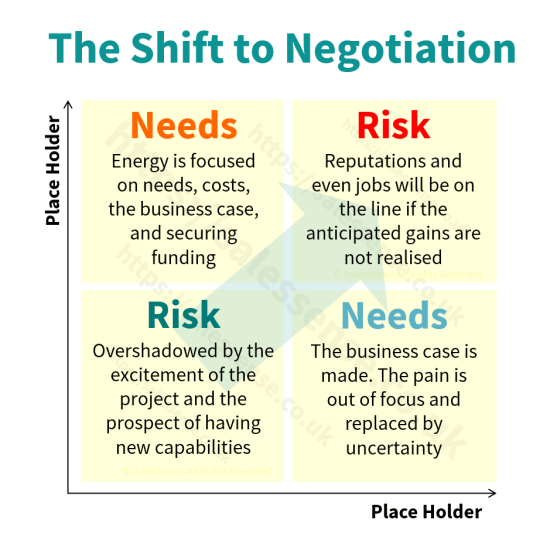Selling price pressure, sales objections, and improving sales price negotiation.

Mark Hunter explains why and how you should defend your selling price in the guest article.
The phone rings and the sales manager hears on the other end the all-too-familiar plea of a salesperson. The salesperson tries to convince the sales manager that it makes so much sense to offer the prospect a selling price discount to get them to finally become a customer.
Of course, the salesperson has the expectation that this new customer will quickly become a high-profit customer. The sales manager has heard the same plea hundreds of times before, and yet for some reason, the salesperson and the lack of current sales suddenly make offering a discount very attractive.
It's as if we're watching the unveiling of a very slow accident that is completely avoidable and yet happens anyway. The salesperson gets it into his or her head that the only way to close the deal is by discounting the price. They just need to convince their sales manager to go along with it.
When this occurs, a major shift happens in how the salesperson does their job. No longer are they selling to the customer; now they're selling to the sales manager.
The problem with this is simple – a salesperson gets paid for selling to customers. That's how both the top line and the bottom line are made. If you're reading this and you're a salesperson, here is some very simple advice. Contrary to what you believe will happen, you will never make up in long-term profit what you're about to give up with your immediate discount.
Sure, there are always exceptions to this, but such exceptions are similar to me winning the lottery. Is it doable? Yes. Is it probable? NO!
When you discount the price, the new price is now the price of value the customer is willing to pay. When they're offered the price once, they will expect it again and again. When you attempt to move the price to the "normal or regular" price, they see it as a price increase. Even if you do get the price up to the "normal or regular" price, you're still behind the profit curve because of all the product you sold to the customer at the lower "discounted" price.
I hear this argument a lot: "You don't understand. If I didn't offer the discount, I would never have had the opportunity to move the price up, because they would never have become a customer."
My response is always the same: "So what! It doesn't matter."
In your quest to get the customer, you cut your price. But you did so much more than that. What you did was cut your profit dollar for dollar. That is a very simple fact of what happens when you cut your price. It's highly unlikely you cut the cost of your goods or services because your goal is to get the customer to experience what you can do. That means the only place to cut is your profit.
Here's the deal: Your ability as a salesperson is not in how much you sell, but in how much you earn for your company. It's the bottom-line profit that counts, and anytime you reduce your price, you're slashing your profit.
There is not a sales manager out there of any quality who will allow any salesperson to spend their valuable time trying to sell internally. The focus must be on external selling.
Focus first on creating value by determining the needs of the customer. Then position your product or service as the solution, and do so at full price.
This is the only strategy that ensures you are not only protecting profit but also ultimately in a place to increase it!
Author: Mark Hunter, "The Sales Hunter," is a sales expert who speaks to thousands each year on how to increase their sales profitability. For more information, to receive a free weekly email sales tip, or to read his Sales Motivation Blog, visit http://www.TheSalesHunter.com. You can also follow him on X http://x.com/thesaleshunter, on http://www.LinkedIn.com (Mark Hunter), and on his Facebook Fan Page, http://www.facebook.com/TheSalesHunter.
If you need to know how to defend your selling price in the face of a sales objection or improve sales price negotiation, we can help. Telephone +44 (0)1392 851500. We will be pleased to learn about your needs or talk through some options. Send an email to custserv@salessense.co.uk for a prompt reply or use the contact form here.












